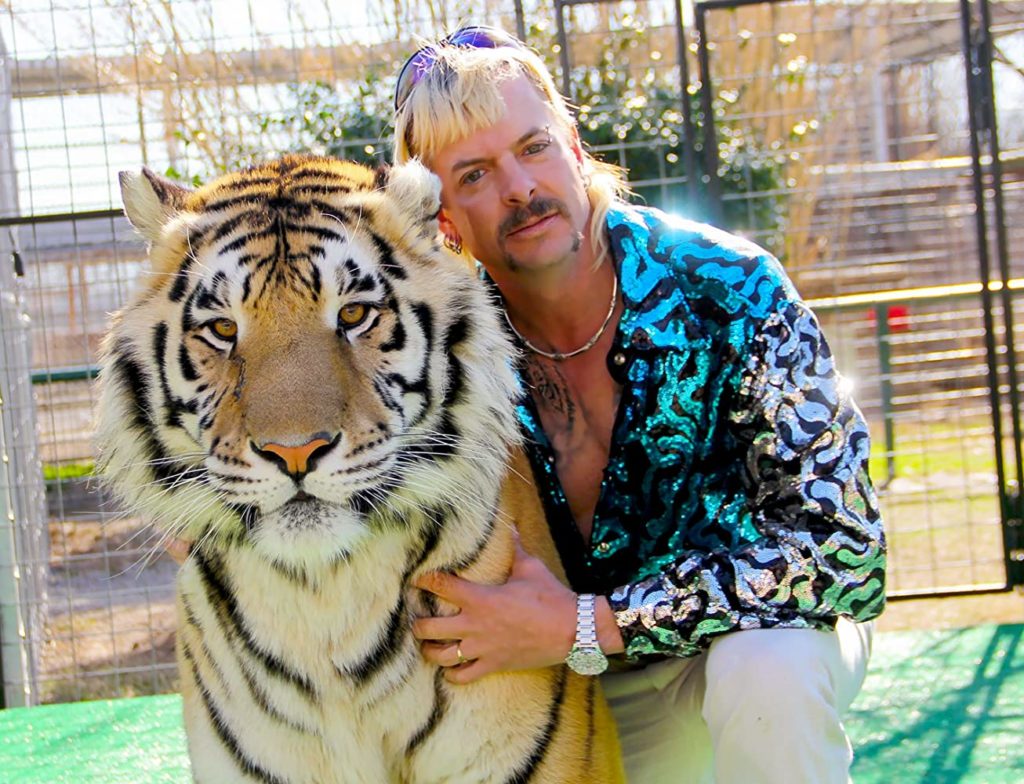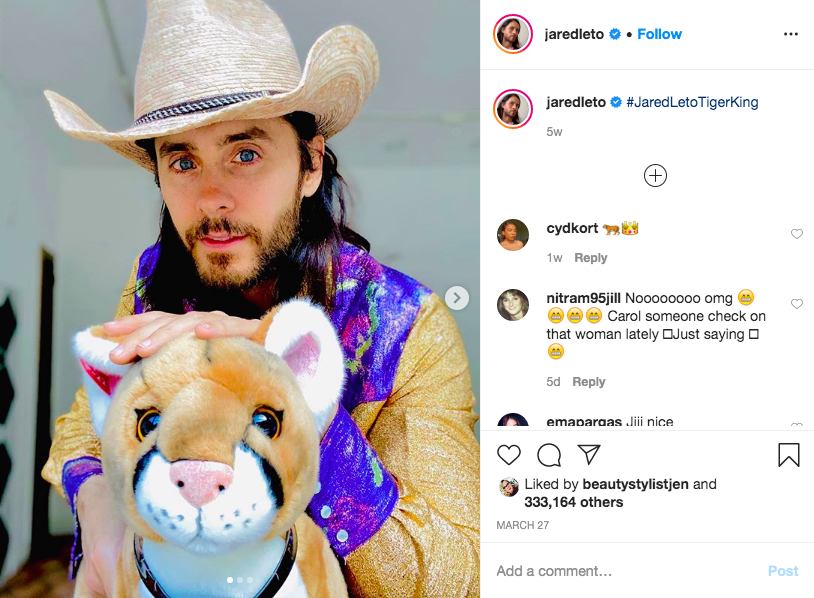I watched Tiger King about a month after almost everyone else in the world. I had read a New York magazine article when it came out in September 2019 and could see early on that this wasn’t really about animals—it was about the crimes and eccentricities of humans exploiting animals.
Of course, there is nothing wrong with having a human-centered narrative. But under the guise of an objective-sounding “documentary,” Tiger King is a soap-opera spectacle that strives for gasps and groans rather than edifying truth.
A vegan friend who chose not to watch it said that he avoids shows that are “like a circus.” This makes sense, given the cast of colorful and unlikely characters like a gay cowboy polygamist and his tattooed husband with missing front teeth. A circus is an artificial space where heavily made-up characters perform in order to titillate and entertain the spectators. The circus demands you suspend moral judgments because it is assumed to be unreal. Sadly, this play-acting by the human performers has reduced and glossed over the very real, horrible conditions of life for the animals in Tiger King.
Every character in the documentary has benefitted from the documentary’s success, except for the animals. Thus far, Joe Exotic is said to be “over the moon” about his new fame; having garnered celebrity fans such as Cardi B, he has petitioned President Trump to pardon him. Even the Sheriff investigating Carole Baskins’s missing-husband case noted: “Raise your hand if you’re not a Joe Exotic fan, if you’re not rooting for that individual, even knowing that he was a suspect in some of his own dealings.”
Until the coronavirus shut-down, the zoo in Oklahoma was open and booming: Jeff Lowe, the current proprietor, wrote on Facebook that “the crowds have been huge since the Netflix show.” Lowe is also now available for Cameo, a service that allows fans to pay D-list celebrities to send them video messages. In a follow-up episode after the series finale, several characters expressed feeling flattered at how people would stop them on the streets to take selfies. There’s no doubt that they will each go on to try to monetize their 15 minutes of fame, however they can.
Even celebrities are joining in this attention-grabbing frenzy. News broke this week that Nicholas Cage will play Joe Exotic in a small-screen adaptation. Jared Leto, a vegan no less, posed in a cowboy hat next to a stuffed tiger toy, using hashtag #JaredLetoTigerKing and coyly hinting at his own desire to be cast.
Because Tiger King is a circus, the mood around the media frenzy is cheerful and giddy, and public opinion toward the human characters forgiving and warm. We’ve all but collectively forgiven animal abusers for their moral failings and serious crimes. All the zoos featured in the series continue to confine and abuse critically endangered and highly intelligent animals. Fortunately, Tiger King has generated a small positive step forward for the animals, as celebrities including Glenn Close, Joaquin Phoenix, Rooney Mara, Kate Mara, Olivia Wilde, and more have since expressed their support for the Big Cat Public Safety Act, according to the Animal Legal Defense Fund. Click here to see the whole list and to add your own name to the petition.
Tiger King feels so American not just because of its regionalism, but because we’re so used to taking something criminal and morally reprehensible and turning it into a national pastime. From O.J. Simpson trials to the Robert Durst documentary to true-crime podcasts, we like to enjoy the drama without seriously considering the effect on victims. But significantly in this case, the victims of Tiger King are still alive and abused—which is why Tiger King must go beyond a conversation starter or a quarantine time-killer. We must wake up to the reality and be morally outraged, not entertained—lest we become exactly like the ancient Romans who delighted in the slaughter in the Circus Maximus.
Get more like this—Sign up for our daily inspirational newsletter for exclusive content!
__
Photo: Netflix; Jared Leto via Instagram






